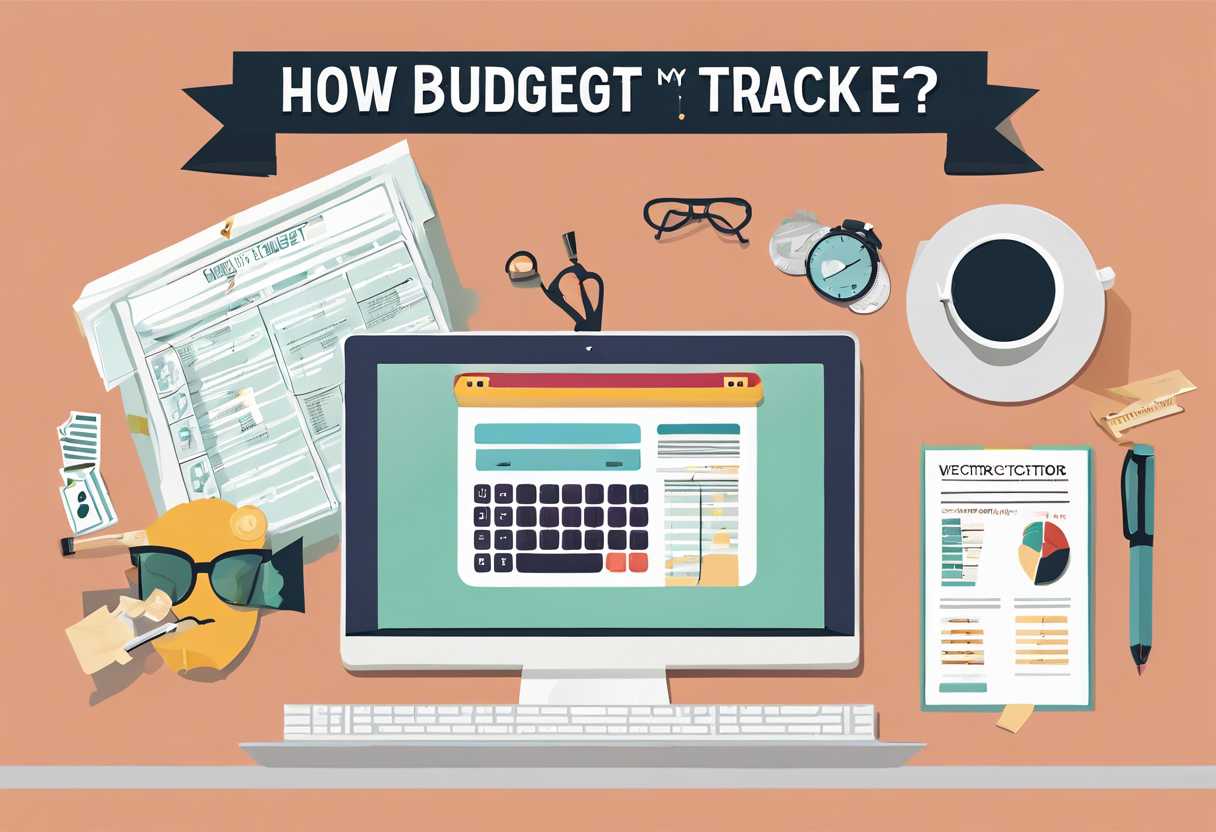Are you wondering, “How long do I have to track my budget?” Tracking your budget is an essential part of financial management, but determining the right timeframe for budget tracking can be a challenge. In this blog post, we will explore the importance of tracking your budget, setting realistic timeframes, strategies for consistent monitoring, evaluating the effectiveness of your budget tracking period, and the long-term benefits of maintaining a budget tracking habit. By the end of this post, you will have a clear understanding of how long you should track your budget and the best practices for doing so. Let’s dive in!
Understanding the Importance of Tracking Your Budget
The Benefits of Tracking Your Budget
Tracking your budget is essential for maintaining financial stability and achieving your financial goals. By keeping a close eye on your income and expenses, you can identify areas where you may be overspending and make necessary adjustments. This can help you avoid debt, build savings, and ultimately improve your overall financial well-being.
How Tracking Your Budget Can Help You
When you track your budget, you gain a clear understanding of where your money is going. This allows you to make informed decisions about your spending and prioritize your financial goals. Additionally, tracking your budget can help you identify any unnecessary expenses and find opportunities to save money. By doing so, you can take control of your finances and work towards a more secure financial future.
Tools for Tracking Your Budget
There are various tools available to help you track your budget, from simple spreadsheets to sophisticated budgeting software. These tools can provide valuable insights into your spending habits and help you create a realistic budget that aligns with your financial goals. Some popular budgeting tools include Mint, YNAB, and Personal Capital. Consider exploring these options to find the best fit for your needs.
Setting Realistic Timeframes for Budget Tracking
Understanding the Importance of Realistic Timeframes
When it comes to budget tracking, setting realistic timeframes is crucial for accurate financial management. It allows businesses to monitor their expenses and income effectively, identify potential issues, and make informed decisions to improve their financial health.
Factors to Consider When Setting Timeframes
When determining the appropriate timeframes for budget tracking, several factors need to be taken into account. These include the size and complexity of the organization, the frequency of financial transactions, and the specific goals and objectives of the budget tracking process. By considering these factors, businesses can establish timeframes that are tailored to their unique needs and circumstances.
Benefits of Setting Realistic Timeframes
Setting realistic timeframes for budget tracking offers several benefits. It provides a clear and structured approach to financial management, enhances accountability and transparency, and enables businesses to identify trends and patterns in their financial data. Additionally, it helps in the early detection of potential issues, allowing for timely intervention and corrective action.

Strategies for Consistently Monitoring Your Budget
Utilize Budgeting Software
One of the most effective ways to consistently monitor your budget is by using budgeting software. These tools can help you track your expenses, set financial goals, and create detailed reports on your spending habits. By regularly inputting your financial data into the software, you can gain valuable insights into where your money is going and make informed decisions about your spending.
Set Regular Check-In Dates
Another strategy for consistently monitoring your budget is to schedule regular check-in dates. Whether it’s weekly, bi-weekly, or monthly, setting aside time to review your finances can help you stay on top of your budget. During these check-ins, you can assess your progress towards your financial goals, identify any areas of overspending, and make adjustments to your budget as needed.
Track Your Expenses
Tracking your expenses is crucial for maintaining a consistent budget. Whether you use a spreadsheet, a mobile app, or simply keep receipts, keeping a record of your spending can help you identify patterns and areas where you can cut back. By categorizing your expenses and comparing them to your budget, you can gain a better understanding of your financial habits and make necessary changes to stay on track.
Evaluating the Effectiveness of Your Budget Tracking Period
Understanding Your Financial Goals
Before evaluating the effectiveness of your budget tracking period, it’s important to have a clear understanding of your financial goals. Whether you’re aiming to save for a big purchase, pay off debt, or simply build a nest egg, your budget tracking period should align with these objectives. Take some time to review your financial goals and ensure that your budget tracking period is helping you make progress towards them.
Comparing Actual vs. Projected Spending
One of the most effective ways to evaluate the effectiveness of your budget tracking period is to compare your actual spending with your projected spending. This can help you identify any areas where you may be overspending or where you may have underestimated your expenses. By analyzing this data, you can make adjustments to your budget and ensure that you’re staying on track with your financial goals.
Assessing Your Savings and Investments
Another important aspect of evaluating the effectiveness of your budget tracking period is assessing your savings and investments. Are you able to consistently set aside money for your savings goals? Are your investments performing as expected? By reviewing these aspects of your financial situation, you can determine whether your budget tracking period is helping you build wealth and secure your financial future.
Long-Term Benefits of Maintaining a Budget Tracking Habit
Financial Stability
One of the most significant long-term benefits of maintaining a budget tracking habit is achieving financial stability. By consistently tracking your income and expenses, you gain a clear understanding of your financial situation. This allows you to make informed decisions about saving, investing, and spending, ultimately leading to a more stable financial future.
Debt Reduction
Another long-term benefit of budget tracking is the ability to reduce and eliminate debt. By closely monitoring your spending habits, you can identify areas where you may be overspending and make adjustments to allocate more funds towards paying off debt. Over time, this can lead to significant reductions in debt and ultimately financial freedom.
Wealth Building
By consistently tracking your budget, you can also work towards building wealth over the long term. By identifying areas where you can save and invest, you can grow your assets and increase your net worth. This can lead to a more comfortable retirement, the ability to support your family, and achieve your long-term financial goals.
Conclusion
Understanding the importance of tracking your budget is crucial for achieving financial stability and reaching your financial goals. Setting realistic timeframes for budget tracking allows you to stay committed and focused on your financial progress. By implementing strategies for consistently monitoring your budget, you can ensure that you are staying on track and making informed financial decisions.
Evaluating the effectiveness of your budget tracking period is essential for making adjustments and improvements to your budgeting process. By analyzing your spending habits and financial patterns, you can identify areas for potential savings and optimize your budget for better results.
Ultimately, the long-term benefits of maintaining a budget tracking habit are significant. Not only does it provide you with a clear understanding of your financial situation, but it also empowers you to take control of your finances and make informed decisions for a secure financial future.
As you continue on your journey to financial wellness, remember that tracking your budget is an ongoing process. It’s important to stay committed and dedicated to maintaining a healthy financial lifestyle. By doing so, you can achieve your financial goals and enjoy peace of mind knowing that you are in control of your finances.
Start tracking your budget today and take the first step towards financial empowerment and security.

